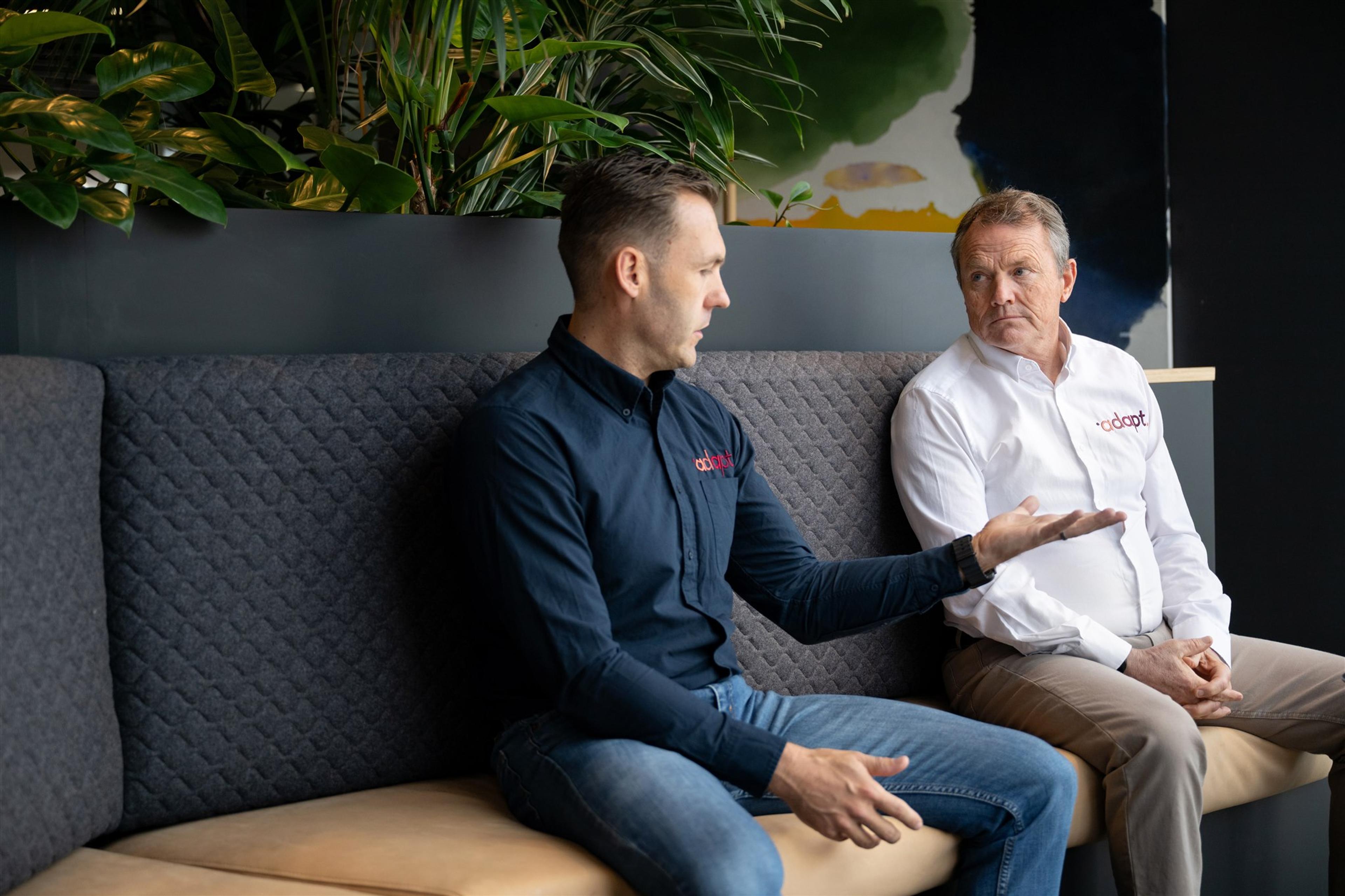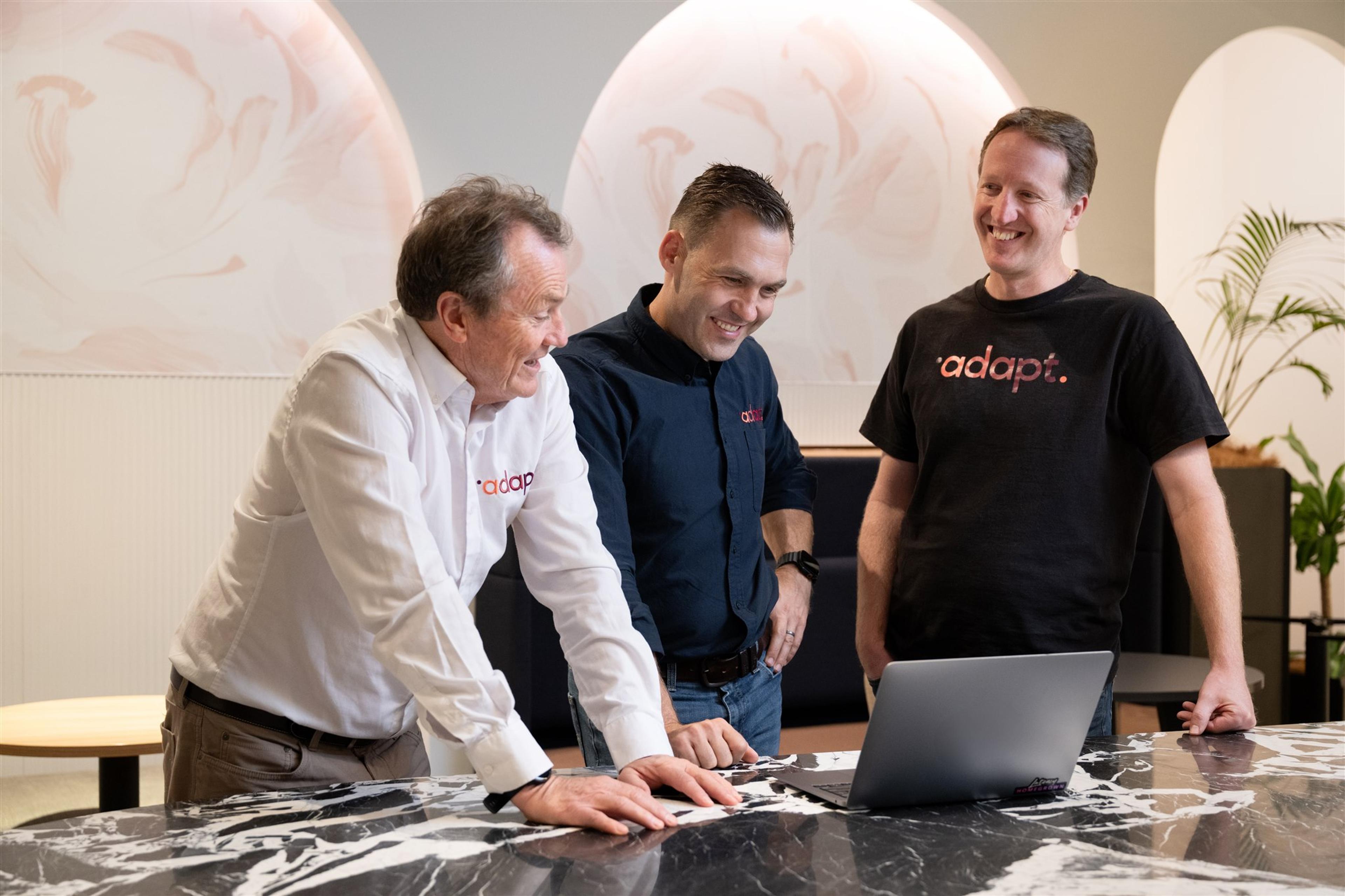Building Business Resilience Through Platform Support

Resilience is the cornerstone of a business’s ability to navigate challenges like economic shifts or industry disruptions. It requires adapting, recovering, and thriving regardless of what comes your way. Businesses that build resilience position themselves to survive and grow stronger with every challenge.
Digital platforms offering business coaching have become essential tools in achieving this resilience. They provide actionable strategies, foster adaptability, and equip businesses with the skills needed to handle uncertainty effectively. These platforms address immediate challenges and create the foundation for long-term success.
At adapt we focus on empowering businesses to become resilient through a structured framework. By strengthening leadership, strategy, culture, teams, and systems, we help organisations develop the agility and strength needed to overcome obstacles and seize opportunities. We will explore how coaching platforms can transform businesses and ensure they’re prepared for whatever comes next.
Understanding Business Coaching Platforms and Their Impact
Business coaching platforms are digital tools designed to support growth and development within organisations. They deliver structured coaching programmes that address challenges, build capabilities, and drive meaningful change. These platforms act as a guide, helping businesses align their goals, develop their teams, and create strategies for success.
The benefits of using coaching platforms extend across an organisation. They enhance employee engagement by fostering a culture of learning and collaboration. Leadership teams gain valuable skills to make better decisions, while teams across the board improve their productivity and morale. The result is a more aligned, focused, and effective organisation.
These platforms have gained global recognition for their innovative features and ability to deliver tailored solutions. Whether it’s matching leaders with the right coach or providing actionable insights through analytics, they help businesses tackle challenges with clarity and confidence
When companies incorporate business coaching platforms into their strategy, they can transform their approach to leadership and development, ensuring they stay adaptable and resilient in the face of change.
Key Features to Look for in a Business Coaching Platform
Choosing the right coaching platform can significantly impact the success of your organisation. The ideal platform should be flexible, user-friendly, and designed to meet the unique needs of your business. Here are the key features to prioritise when evaluating options:
- Scalability: A good platform should accommodate businesses of all sizes, from small teams to large enterprises. It must allow for tailored coaching programmes that grow with your organisation.
- Integration capabilities: Seamless integration with tools such as Microsoft 365 calendar, Google Drive, One Drive and Drop Box integrations.
These features streamline the coaching process and enhance its effectiveness, ensuring that the platform becomes an integral part of your organisation’s development strategy. Our platform at adapt incorporates these features and more, to give businesses the resilient edge they need.
Building a Coaching Culture: Transforming Teams and Organisations
A coaching culture is more than just providing access to training sessions or development tools—it requires embedding coaching into the fabric of how a business operates. When coaching becomes a regular part of the workplace, it transforms both teams and organisations in powerful ways.
Improving Teams
Coaching helps teams collaborate more effectively by fostering better communication and problem-solving skills. It encourages individuals to take ownership of their roles, boosting confidence and accountability. This shift in mindset leads to stronger relationships and improved morale, making teams more productive and resilient.
The Ripple Effect on Organisations
When teams work well, the organisation benefits. Businesses that adopt a coaching culture often see increased innovation, higher employee retention, and enhanced productivity. Coaching fosters a shared sense of purpose and alignment with organisational goals, creating a unified and motivated workforce.
Real-World Success Stories
Consider the example of Virgin Atlantic. By integrating coaching programmes, they strengthened their leadership capabilities and improved decision-making across the organisation. These kinds of transformations highlight the tangible impact coaching can have on a company’s success.
Embedding Coaching in Everyday Work
For a coaching culture to flourish, it needs to be woven into the daily practices of the organisation. Coaching shouldn’t be limited to formal sessions; it should become part of how teams approach problem-solving, feedback, and development.
Managers who adopt a coaching mindset can guide their teams through challenges in real-time, encouraging continuous learning and improvement. The integration of coaching into regular workflows can help businesses foster an environment where growth becomes second nature.
Leadership as Coaches
Leaders play a pivotal role in building and sustaining a coaching culture. When leaders act as coaches, they inspire their teams to think critically, take ownership, and find solutions collaboratively. This approach shifts the dynamic from top-down directives to empowering individuals, creating a sense of trust and engagement.
Organisations that invest in leadership development programmes focused on coaching skills see stronger alignment between their vision and execution, as leaders drive transformation from within.
Building a coaching culture is an investment in the future of your organisation. Empowering teams with the skills and mindset to excel allows businesses to unlock their full potential and achieve long-term resilience.

The Science of Coaching: Data-Driven and Evidence-Based Practices
Coaching isn’t just an art; it’s a science rooted in data and evidence-based methods. The most effective coaching platforms rely on proven frameworks and measurable outcomes to deliver real, lasting results for businesses.
Science-Backed Frameworks
Many top coaching platforms, such as our system at adapt, use research-driven methodologies to guide their programmes. The holistic framework integrates science with practical coaching strategies to foster personal and professional growth. These frameworks ensure that every coaching session is grounded in principles that work.
The Role of Assessments
Personalisation is at the heart of effective coaching. Platforms use assessments to identify individual and team strengths, weaknesses, and growth opportunities. This allows them to create tailored growth plans that target specific skills and address the unique needs of the organisation.
Measurable Outcomes
Coaching is only as valuable as the results it delivers. Data and analytics play a vital role in tracking progress and demonstrating return on investment (ROI). Platforms offer tools to monitor key metrics, such as employee engagement, leadership effectiveness, and team performance. This evidence provides transparency and ensures accountability.
Coaching platforms take the guesswork out of development by leveraging data and evidence-based practices. They provide businesses with clear, actionable insights that drive meaningful change, ensuring that every step of the coaching process contributes to building a stronger, more resilient organisation.
The Role of Continuous Feedback in Coaching
Continuous feedback is a cornerstone of effective, evidence-based coaching. Unlike traditional methods that rely on periodic reviews, modern coaching platforms emphasise real-time feedback to foster ongoing development. This approach ensures that employees and leaders alike receive timely, actionable insights that they can immediately apply to their roles.
Feedback loops powered by data analytics provide measurable insights into performance, skill gaps, and progress. For instance, platforms may use tools like 360-degree assessments or regular pulse surveys to capture input from peers, managers, and team members. This creates a comprehensive view of an individual’s development and identifies areas for targeted improvement.
Feedback is not only a great tool to identify weaknesses—it’s also a powerful motivator. Recognising progress and achievements boosts confidence and encourages further growth. Organisations create a culture of accountability, transparency, and sustained improvement, ensuring coaching delivers long-term, impactful results by embedding continuous feedback into coaching practices.
Overcoming Common Challenges in Implementing Coaching Platforms
Introducing a coaching platform can revolutionise how a business operates, but it’s not without challenges. From logistical hurdles to ensuring the right fit for diverse needs, successful implementation requires careful planning and the right tools.
Addressing Logistical Challenges
Coaching often involves coordinating across time zones, managing cultural differences, and scaling to meet the needs of teams at all levels. These logistical issues can create barriers to effective implementation. However, many platforms, ours included, address these challenges with innovative solutions, such as flexible scheduling tools and multilingual support.
Recognising That One Size Doesn’t Fit All
Every organisation is unique, and coaching must reflect this. A one-size-fits-all approach won’t resonate with diverse teams or align with specific business goals. The best coaching platforms offer tailored programmes and multiple coaching styles to ensure every participant receives personalised support.
Resistance to Change
One of the most common challenges in implementing coaching platforms is resistance from employees or leaders who are hesitant to adopt new methods. People may feel unsure about the benefits of coaching or worry about the time commitment it requires. This reluctance can slow down the integration process and limit the platform’s impact.
The key to overcoming resistance is clear communication and education. Start by explaining the purpose of the coaching platform and how it aligns with organisational goals. Share success stories and data-driven results from similar implementations to demonstrate its value. Providing introductory training sessions and offering trial runs can help employees and leaders become more comfortable with the platform. Encouraging feedback during this transition also fosters a sense of involvement and buy-in.
Ensuring Consistent Engagement
Another challenge is maintaining consistent engagement with the coaching platform over time. Employees may initially show enthusiasm but lose interest if the platform’s content feels repetitive or disconnected from their daily work.
To sustain engagement, the coaching platform should offer personalised, dynamic, and evolving content. Features like tailored coaching plans, gamification, and AI-driven recommendations keep the experience fresh and relevant. Scheduling regular check-ins to review progress and adjust goals ensures that coaching remains meaningful and connected to individual and organisational objectives. Additionally, recognising milestones and celebrating achievements can motivate users to stay actively involved.
Solutions Offered by Coaching Platforms
Modern platforms provide several features to overcome these common challenges:
- Multilingual Support: Enables teams from different regions to participate without language barriers.
- Flexible Scheduling: Allows participants to book sessions that fit their busy schedules, accommodating global teams across time zones.
- Customisable Templates: Empowers organisations to design coaching programmes that align with their unique objectives and culture.
Selecting a platform with these features will assist businesses to mitigate common issues and create a seamless coaching experience. Addressing challenges upfront ensures the platform delivers maximum value and strengthens organisational resilience.
The Future of Coaching Platforms: Innovation and Growth
Coaching platforms are improving rapidly, adopting new technologies and trends to meet the changing needs of businesses. The future of these platforms is centred on innovation, accessibility, and enhanced personalisation, making coaching more impactful than ever before.
AI and Virtual Coaching
Artificial intelligence is transforming how coaching is delivered. Platforms are leveraging AI to personalise learning experiences, match users with the best-suited coaches, and provide real-time feedback. Virtual coaching sessions, powered by AI, make it possible to access high-quality coaching from anywhere, eliminating geographical limitations.
Mobile-First Approaches
With the rise of remote work and busy schedules, mobile-friendly platforms are becoming essential. These platforms ensure coaching is accessible on the go, allowing users to engage with sessions, resources, and feedback directly from their smartphones or tablets. This level of convenience empowers employees to integrate coaching into their daily routines seamlessly.
Leading Innovators Driving Change
Several companies are setting the standard by focusing on community-driven features that encourage collaboration and shared learning. These platforms deliver coaching and create spaces where users can connect, share insights, and grow together.
The future of coaching platforms lies in their ability to adapt and innovate, providing businesses with tools that are as dynamic and forward-thinking as the organisations they serve. By utilising these advancements, companies can ensure their teams are equipped to succeed in an ever-changing business landscape.
adapt is at the forefront in the coaching platform sector, consistently integrating the latest advancements to deliver transformative results for businesses.
Our platform incorporates data analytics to track progress, measure outcomes, and refine strategies, ensuring every session delivers tangible value. With a focus on adaptability and user-centric design, adapt evolves with industry trends, making it a trusted partner for organisations striving to stay resilient and future-focused in a competitive business environment.
Conclusion: Achieving Resilience with the Right Support
Building resilience does not mean simply weathering challenges—it means growing in spite of them. Coaching platforms play a vital role in this journey, providing businesses with the tools, strategies, and insights needed to adapt, grow, and succeed in dynamic environments. These platforms empower organisations by fostering leadership development, improving team collaboration, and driving measurable results.
With features like personalisation, flexible scheduling, and seamless integrations, they make coaching accessible and effective for businesses of all sizes. The right coaching platform enhances individual performance and transforms entire organisations, embedding resilience into the core of how they operate. Investing in a platform that aligns with your goals allows you to set the foundation for sustained growth and agility.
If you’re ready to future-proof your business and unlock your team’s potential, it’s time to explore coaching platforms tailored to your needs. Resilience isn’t just an advantage—it’s a necessity, and the right support can make all the difference.




